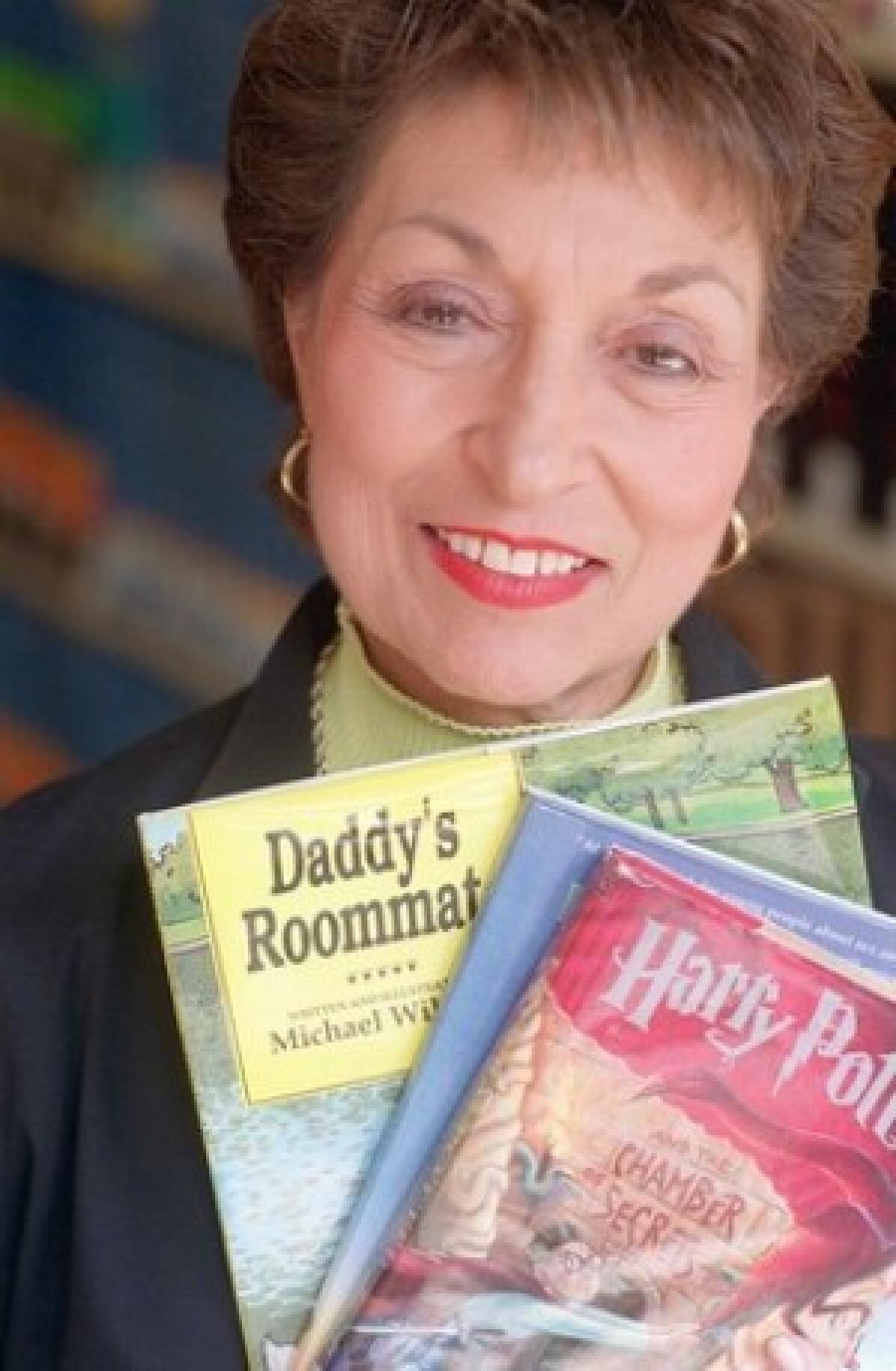Judith F. Krug dies at 69; advocate for librarians battled censorship

Judith F. Krug, a forceful advocate for the right of librarians to stock their shelves without fear of censorship, died of stomach cancer Saturday at a hospital in Evanston, Ill., where she lived. She was 69.
Director of the American Library Assn.’s Office for Intellectual Freedom since it was founded in 1967, Krug started Banned Books Week in 1982 to promote the right to read stories and express opinions without interference from censors.
“She was a force of nature, fiercely determined to make sure that censorship wouldn’t triumph in the library or the larger world,” said Deborah Caldwell-Stone, deputy director of the Office for Intellectual Freedom.
Krug worked directly with librarians across the country who were engaged in censorship battles. She enlisted allies from fields that are affected by 1st Amendment attacks, such as publishers and journalists, said Robert Doyle, executive director of the Illinois Library Assn.
“She was concerned about the gamut of expression, so that people could go to the library and encounter the full marketplace of ideas,” Doyle said.
The library association annually puts out a list of books most often targeted by censors. Perennials include “The Adventures of Huckleberry Finn” by Mark Twain and works by young adult writer Judy Blume. More recently, the “Harry Potter” books have come under fire because they deal with witchcraft.
In 1992, Madonna’s ode to kinky intimacy, “Sex,” led to an outcry from those who felt it was too racy for libraries. A 1st Amendment absolutist who felt libraries should be allowed to carry any material that was legal, Krug defended the entertainer’s book -- or at least the right of libraries to stock it.
“The book is sleazy trash, but it should be in every medium-sized library in the United States,” Krug told the Chicago Tribune.
Krug helped establish the Freedom to Read Foundation in 1969 with missions that include paying the litigation costs of freedom of speech cases.
Krug was born Judith Fingeret in Pittsburgh in 1940 and received a bachelor’s in political science from the University of Pittsburgh and a master’s in library science from the University of Chicago. She worked at a library in the Hyde Park neighborhood of Chicago and at Northwestern University before starting with the library association.
Krug once told Caldwell-Stone that the importance of her work was made clear when she read “And Tango Makes Three” to her granddaughter’s class.
The book is often the target of censors because it’s about two male penguins that “adopt” an unclaimed egg. When she was finished, a girl she later learned was being raised by two women stood and applauded.
Krug is survived by her husband, Herbert; a son, Steven; a daughter, Michelle Litchman; two brothers, Jay and Arnold Fingeret; a sister, Shirley Katzman; and five grandchildren.
More to Read
Start your day right
Sign up for Essential California for the L.A. Times biggest news, features and recommendations in your inbox six days a week.
You may occasionally receive promotional content from the Los Angeles Times.






